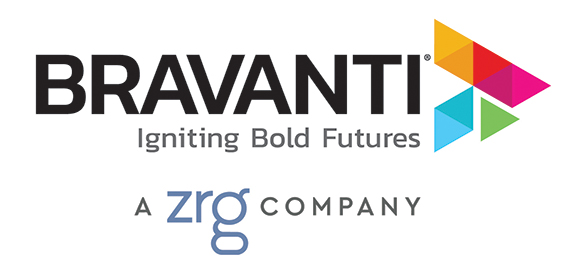Podcast: Play in new window | Download
The full transcript is available below.
Brenda Wensil: Well, welcome to Taking the Lead. This is a shortcast, podcast series where we talk with top business leaders about the challenges and opportunities that we face in today’s marketplace. I’m your host, Brenda Wensil, a managing director with the Leadership Acceleration Practice at BPI group. In this episode, we are delighted to speak with Leslie Bacque Smith, who is the Senior Manager of Global Talent and Leadership Development with SAS, which is a global and leading software development company.
We are delighted to have you, Leslie. Thank you for joining us today to talk about this topic of how this pandemic world we are living in is having an unusual and disproportionate effect on women in the workforce, and the impact that it is having on them leaving the workforce in particular. So Leslie, welcome. So delighted to have you join us for this conversation.
Leslie Bacque Smith: Thank you so much, Brenda. I’m really happy to be here today.
Brenda Wensil: Let me get us started with this, Leslie. I know that you are working and seeing things from a global perspective as well, not just here in the U.S., but abroad. The U.S. Department of Labor had an interesting statistic recently that says that more than 865,000 women left the workforce in September, which is a staggering number. It appears that it is at least four times the rate of men in the workforce. So let’s talk about why women are leaving. What are you seeing, Leslie? And what’s your take on this dynamic that’s happening?
Leslie Bacque Smith: Yeah. Thanks for asking. That’s a staggering number and it’s a question that we should all be asking and trying to find the answer to. I think there are so many women who are working from home right now. And since they’re working from home, they’re likely, if they have them, also taking care of children at the same time. Because so many kids are not yet back in school. These two activities, women working and taking care of children, those are not sustainable and compatible activities in the long run.
So, I think that many women who don’t have the resources to support themselves at work at home, and to support their children in their schoolwork at home, opt to give up work because they can’t sustain those crushing demands of working and parenting simultaneously.
The reality is that even if women have partners who are working from home with them, the reality is that a lot of kids go to mom first, if she’s available, or if it’s an option. Because that’s just what kids do. I think that leaves a lot of women to fulfill the caretaking responsibilities in addition to working full time. So those are the women who are working from home and maybe taking care of children at the same time. I think since those demands just aren’t sustainable in the long run, they opt to give up their jobs because we’re not going to give up our kids, right? They come first.
For women who work outside of the home, who are having to go in to work right now, they may decide to leave work if they have children who need caretaking, and/or a partner whose work takes priority. Maybe their partner makes more money – is the primary breadwinner. Maybe the partner has more flexibility in their work. So the decision is made for the woman in the relationship to give up her job to take care of the family responsibilities.
Brenda Wensil: Let me ask you this question for all of us involved in this work and concerned about these issues. What do you think a company like SAS, or any company, can do right now to support women and improve their likelihood to stay with the firms they’re with? And/or advance when we get to the other side of this?
Leslie Bacque Smith: Yeah. I think our workplaces, companies, right now have a real opportunity to provide a level of support that they’ve not needed to provide before.
I am so fortunate to be able to work for a company that prioritizes work and life balance and family as much as SAS does. So I think first off, companies have to provide some flexibility and understand that if they’re allowing their workforce to work from home, that will necessitate allowing work outside of regular business hours. Because if you’ve got families in the same home together all day, it’s very likely that moms and dads are going to get interrupted. So there’s going to be those caretaking responsibilities during the day, which is going to interrupt that regular workflow.
So allowing for employees to work earlier in the day, or even later in the day, instead of insisting that people are online all the time in those traditional work hours of say, 8:00 to 5:00. I think that can be helpful. So allowing some flexibility. That same flexibility can also create an environment where parents never get a break. So that also has to be considered.
I think aside from policies around flexible work, individual leaders need to really step up and exercise that empathy muscle. Communicate their support to their employees. Make sure that their employees know that they understand what sorts of challenges they’re facing right now. Be open to talking about it. I know that my boss and I regularly start our one-on-ones with just sort of a, “How you’re doing” conversation, and talking about where our minds and hearts are right now, as we’re navigating through this.
As I said, at SAS our leaders have been really supportive from the start of the pandemic. They’ve prioritized employee wellbeing. They’re encouraging managers to check in with employees on engagement and offer support. Doing things like inviting and allowing children to make an appearance on calls. That’s something that we’re seeing more and more.
Our recreation fitness center is doing virtual offerings for kids to help occupy them during the day, like exercise and cooking clubs. All of these types of things, I think, can help parents navigate, and women, especially, navigate those regular demands that are going to face them day to day, as they’re trying to work from home.
Brenda Wensil: What do you think are some strategies that professional women can employ right now to balance all of this during a stressful time and stay engaged with their work?
Leslie Bacque Smith: This is a tough one. Because these are all things I should be doing and I’m not as good at this part. But in terms of just the day to day, taking some breaks. So, I think it’s easy to sort of hunker down and sit in front of your computer and forget to eat lunch or to grab your lunch and bring it right back to your computer. Because there’s nobody knocking on the office door saying, “Hey, do you want to go get lunch with me?” There’s nobody pulling us away. So I think we have to be really disciplined and conscientious about taking breaks just as we would at the office. Getting up and stretching, walking outside, looking at the trees.
I have a friend who walks every day in the morning, every day at lunch and every day in the evening. Just around the block, but a way to get up and stretch and move around a little bit, and take a mental break as well.
I think another thing is to set boundaries as much as possible. Work and home for so many of us has just become completely blurred. When the dining room table or the kitchen table is your office, it’s really easy to get pulled into checking email or answering calls outside of standard working hours. So I think to the extent possible, if there’s some boundaries we can set and say, “This is something I’m not going to do,” after a certain time of day and walk away. Even shutting our computers down at the end of the day, makes it harder to sort of jump on. I think that that’s helpful to set boundaries.
Then the regular things that seemed, to me at least, so easy when life was quote/unquote normal, are now a lot harder. Those are the self-care things, like eating well. I joke that many days I’m eating peanut butter crusted bread off of my kids’ plates that they’ve finished lunch. I walk by and I’m sort of grazing off of their leftover lunches. I know it’s not the best thing for me. So trying to eat well, keeping up exercise routines or starting exercise routines, taking time off. A lot of people aren’t taking time off because they feel like they’re home all the time right now. But being conscientious about taking a day off and not logging on to work.
Brenda Wensil: Leslie Bacque-Smith, Senior Manager of Global Talent and Leadership Development with SAS. Leslie, can’t thank you enough for joining us and sharing your thoughts. Best wishes to you and your organization and all of the women and men inside it as we get to the other side of this pandemic, and we’ll continue great work together.
Leslie Bacque-Smith: Thanks so much, Brenda. Appreciate being here.
Outro: Taking the Lead is a production of BPI group and the views expressed are those of the host and guests. For more information, please visit bravanti.com. Music for this podcast is courtesy of Jazzar.

